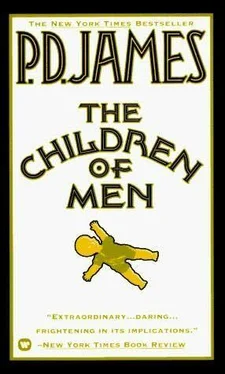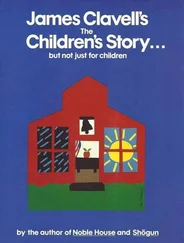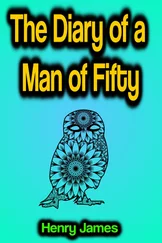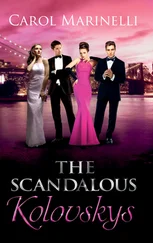Rolf said: “Better leave it. If they find he’s gone it will only remind them that we’re still here. We’ll get him later.”
Julian tugged gently at Theo’s sleeve. “Please get him. There may be a chance that he’s still alive.”
Miriam spoke out of the darkness: “He won’t be alive, but I’m not leaving him there. Dead or alive, we’re together.”
She was already moving forward when Theo caught her by her sleeve. He said quietly: “Stay with Julian. Rolf and I will manage.”
Without looking at Rolf, he made for the road. At first he thought he was alone, but in a few moments Rolf had moved alongside him.
When they reached the dark shape huddled on its side as if asleep, Theo said: “You’re the stronger. You take the head.”
Together they turned the body over. Luke’s face had gone. Even in the distant ruddy light cast by the flaming car they could see that the whole head had been battered into a mess of blood, skin and cracked bones. The arms lay askew, the legs seemed to buckle as Theo braced himself to lift him. It was like trying to take hold of a broken marionette.
He was lighter than Theo had expected, although he could hear his and Rolf’s rasping breath as they crossed the shallow ditch between the road and the wall and eased the body over. When they joined the others Julian and Miriam turned without a word and walked ahead, as if part of a pre-arranged funeral procession. Miriam switched on the torch and they followed the tiny pool of light. The journey seemed endless but Theo judged that they could only have been walking for a minute when they came across a fallen tree.
He said: “We’ll lay him down here.”
Miriam had been careful not to shine the torch on Luke. Now she said to Julian: “Don’t look at him. You don’t need to look at him.”
Julian’s voice was calm. “I have to see. If I don’t see it will be worse. Give me the torch.”
Without another protest Miriam handed it over. Julian shone it slowly over Luke’s body then, kneeling at his head, tried to wipe the blood from his face with her skirt.
Miriam said gently: “It’s no use. There’s nothing there any more.”
Julian said: “He died to save me.”
“He died to save all of us.”
Theo was suddenly aware of a great weariness. He thought: We’ve got to bury him. We have to get him underground before we move on. But move on where and how? Somehow they must get hold of another car, food, water, blankets. But the greatest need now was water. He craved water, thirst driving out hunger. Julian was kneeling by Luke’s body, cradling his shattered head in her lap, her dark hair falling over his face. She made no sound.
Then Rolf bent down and took the torch from Julian’s hand. He shone it full on Miriam’s face. She blinked in the thin but intense beam, instinctively putting up her hand. His voice was low and harsh, and so distorted that it might have been forced through a diseased larynx. He said: “Whose child is she carrying?”
Miriam put down her hand and looked at him steadily but didn’t speak.
He repeated: “I asked you, whose child is she carrying?”
His voice was clearer now, but Theo could see that his whole body was shaking. Instinctively he moved closer to Julian.
Rolf turned on him. “Keep out of this! This is nothing to do with you. I’m asking Miriam.” Then he repeated more violently. “Nothing to do with you! Nothing!”
Julian’s voice came out of the darkness: “Why not ask me?”
For the first time since Luke had died he turned to her. The torchlight moved steadily and slowly from Miriam’s face to hers.
She said: “Luke’s. The child is Luke’s.”
Rolf’s voice was very quiet: “Are you sure?”
“Yes, I’m sure.”
He shone the torch down on Luke’s body and scrutinized it with the cold professional interest of an executioner checking that the condemned is dead, that there is no need for the final coup de grace. Then, with a violent motion he turned away from them, stumbled between the trees and flung himself against one of the beeches, encircling it with his arms.
Miriam said: “My God, what a time to ask! And what a time to be told.”
Theo said: “Go to him, Miriam.”
“My skills aren’t any use to him. He’ll have to cope with this by himself.”
Julian still knelt by Luke’s head. Theo and Miriam, standing together, stared fixedly at that dark shadow as if afraid that, unmarked, it would disappear among the darker shadows of the wood. They could hear no sound but it seemed to Theo that Rolf was rubbing his face against the bark like a tormented animal trying to rid itself of stinging flies. And now he was thrusting his whole body against the tree as if venting his anger and agony on the unyielding wood. Watching those jerking limbs in their obscene parody of lust reinforced for Theo the indecency of witnessing so much pain.
He turned away and said quietly to Miriam: “Did you know that Luke was the father?”
“I knew.”
“She told you?”
“I guessed.”
“But you said nothing.”
“What did you expect me to say? It was never my practice to inquire who fathered the babies I delivered. A baby is a baby.”
“This one is different.”
“Not to a midwife.”
“Did she love him?”
“Ah, that’s what men always want to know. You’d better ask her.”
Theo said: “Miriam, please talk to me about this.”
“I think she was sorry for him. I don’t think she loved either of them, neither Rolf nor Luke. She’s beginning to love you, whatever that means, but I think you know that. If you hadn’t known it, or hoped for it, you wouldn’t be here.”
“Wasn’t Luke ever tested? Or did both he and Rolf give up going for their sperm test?”
“Rolf has, at least during the last few months. He thought that the technicians had been careless or that they’re just not bothering to test half the specimens they take. Luke was exempt from testing. He had mild epilepsy as a child. Like Julian, Luke was a reject.”
They had moved a little apart from Julian. Now, looking back at her dark kneeling shape, Theo said: “She’s so calm. Anyone would think she’s having this child under the best possible circumstances.”
“What are the best possible circumstances? Women have given birth in war, revolutions, famine, concentration camps, on the march. She’s got the essentials, you and a midwife she trusts.”
“She trusts in her God.”
“Perhaps you should try doing the same. It might give you some of her calm. Later, when the baby comes, I shall need your help. I certainly don’t need your anxiety.”
“Do you?” he asked.
She smiled, understanding the question. “Believe in God? No, it’s too late for me. I believe in Julian’s strength and courage and in my own skill. But if He gets us through this maybe I’ll change my mind, see if I can’t get something going with Him.”
“I don’t think He bargains.”
“Oh yes He does. I may not be religious but I know my Bible. My mother saw to that. He bargains all right. But He’s supposed to be just. If He wants belief He’d better provide some evidence.”
“That He exists?”
“That He cares.”
And still they stood, eyes watching that dark figure, hardly discernible against the darker trunk of which he seemed to be part, but quiet now, unmoving, resting against the tree as if in an extremity of exhaustion.
Theo said to Miriam, knowing the futility of the question even as he asked it: “Will he be all right?”
“I don’t know. How can I know?”
She moved from his side and walked towards Rolf, then stopped and stood quietly waiting, knowing that if he needed the comfort of a human touch, there was no one else to whom he could turn.
Читать дальше












